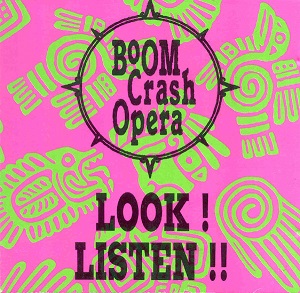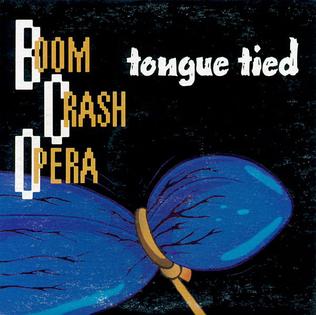
Icehouse are an Australian rock band, formed in Sydney in 1977 as Flowers. Initially known in their homeland for their pub rock style, the band later achieved mainstream success playing new wave and synth-pop music and attained Top 10 singles chart success locally and in both Europe and the U.S. The mainstay of both Flowers and Icehouse has been Iva Davies supplying additional musicians as required. The name "Icehouse", adopted in 1981, comes from an old, cold flat Davies lived in and the strange building across the road populated by itinerant people.

The Dynamic Hepnotics were an Australian soul, blues and funk band which formed in 1979 and disbanded in 1986. Mainstay, lead vocalist and front man, "Continental" Robert Susz formed the group in Sydney. They had chart success on the Australian Kent Music Report Singles Chart with a top 5 single, "Soul Kind of Feeling" in 1984. It was followed by "Gotta Be Wrong " which reached the top 20 in 1985. Their album, Take You Higher, reached the top 20 on the related Albums Chart in June. In 1986, "Soul Kind of Feeling" won the APRA Music Award for 'Most Performed Australasian Popular Work'.

Boom Crash Opera are an Australian pop rock band formed in late 1984. Initially based around the songwriting partnership of Richard Pleasance and Peter Farnan, the band was later joined by Dale Ryder (vocals), Peter ‘Maz’ Maslen (drums) and Greg O’Connor (keyboards). Pleasance developed tinnitus from constant exposure to loud live music and left in 1992 to pursue a solo career as an artist and producer. O’Connor departed in 1994.

"Onion Skin" is a song by Australian band Boom Crash Opera. The song was released in June 1989 as the lead single from their second studio album, These Here Are Crazy Times! (1989), and reached number 11 on the Australian ARIA Singles Chart. The following year, the song was released in the United States and reached number eight on the Billboard Modern Rock Tracks chart that July.

Whispering Jack is the twelfth studio album by Australian adult contemporary pop singer John Farnham. It was produced by Ross Fraser and released on 29 September 1986, peaking at No. 1 on the Australian Kent Music Report albums chart. Whispering Jack became the second-best-selling album in Australia, behind only Meat Loaf's album Bat Out of Hell, and the highest-selling album in Australia by an Australian artist―24× platinum, indicating over 1.68 million copies sold; it remains the third-best-selling album of all time in Australia, as Shania Twain's Come On Over eventually eclipsed it. It spent 25 weeks at the No. 1 spot on the albums chart during 1986–1987, it was awarded the 1987 ARIA Award for Album of the Year, and it was the best-charting album for the decade of the 1980s in Australia. It was the first Australian-made album to be released on compact disc within Australia. One of Farnham's biggest hits, "You're the Voice", was issued as the lead single from the album and peaked at No. 1 on the Kent Music Report singles chart.

These Here Are Crazy Times! is the second studio album by Australian rock group Boom Crash Opera, released in October 1989. The album was the breakthrough album to the lucrative U.S. Market for the band & was released in the United States by Giant records. This release had 2 new reworked versions of the songs "Talk About It" and "The Best Thing". Both songs were re-recorded with producer Jimmy Iovine of U2 fame, after Bono from U2 became a fan of the band during the U2 Love Town tour of Australia in 1989.
Richard Arnold Pleasance is an Australian rock musician and producer. He was a founding member of Boom Crash Opera on guitar, bass guitar, vocals and as a songwriter in 1985; they released three albums before Pleasance left in 1992. Their hit Australian Recording Industry Association (ARIA) singles, "Great Wall" and "Onion Skin" were co-written by Pleasance, who also co-produced their second album, These Here Are Crazy Times. His debut solo release, Galleon received four nominations at the ARIA Music Awards for 1992. Pleasance composed the theme music for Australian television series, SeaChange (1998–2001), for 2006 feature film Kenny and more recently he composed the theme music for the prison drama series Wentworth. Pleasance is married to Michelle and, as from May 2009, he was living in Hepburn Springs, Victoria where he has a recording studio.

Boom Crash Opera is the first album by Australian rock band Boom Crash Opera, released in 1987. Singles released from the album include two which reached the top 20 on the Australian Kent Music Report Singles Chart, "Great Wall" and "Hands Up in the Air".

Look Listen! is the first remix album by Australian rock group Boom Crash Opera, released in 1990. Look Listen! peaked at number 47 on the ARIA Charts.

The Essential Boom Crash Opera is the third compilation album by Australian rock band Boom Crash Opera, released in April 2007.

"Hands Up in the Air" is a song by Australian rock band Boom Crash Opera. It was released in 1986 as the second single from their self-titled studio album.
"City Flat" is a song by Australian rock band Boom Crash Opera, released in 1987 as the third single from their self-titled studio album. It was written by the band's two main songwriters: guitarist Peter Farnan and bass player Richard Pleasance. The song peaked at number 42 in Australia.

"Her Charity" is the fourth single by Australian band Boom Crash Opera, released in 1987. It was the fourth single to be released from the band's self-title album. It peaked at number 32 on the Kent Music Report. The song is about Miss America Beauty pageants.

"Tongue Tied" is a song by Australian pop rock band Boom Crash Opera, written and produced by founding member Peter Farnan. The song was released in January 1995 as the second single from their fourth studio album, Born (1995), and peaked at number 25 on the Australian Singles Chart. As of 2024, it is their most recent top-50 hit in Australia.

"Tongue Tied" is a song by Australian pop rock band Boom Crash Opera, written and produced by founding member Peter Farnan. The song was released in January 1995 as the second single from their fourth studio album, Born (1995), and peaked at number 25 on the Australian Singles Chart. As of 2024, it is their most recent top-50 hit in Australia.

The Best Things – The Greatest Hits is the first greatest hits released by Australian rock band Boom Crash Opera. The album was released in August 1998 and includes tracks from all of Boom Crash Opera's five studio albums as well as non-album single "Soundtrack" and unreleased track "Radio".

The Best Things – The Greatest Hits is the fourth compilation album and third greatest hits released by Australian rock band Boom Crash Opera. The album was released in Australian on 18 October 2013. The album was launched on 25 October 2013 at the Flyer Saucer Club in Melbourne. The album includes tracks from the group's first four studio albums as well as two new tracks recorded in 2012, "I am" and "You Can't Stop the Sun".

Dancing in the Storm is the sixth studio album by Australian rock band Boom Crash Opera. The album was released in Australia on 1 May 2009 as part of the Liberation Music "Blue Acoustic" series. The physical version came with a bonus live DVD, recorded in June 1993.

"Love Me to Death" is a song by Australian rock band Boom Crash Opera, released in 1988. It is the fifth and final single to be released from Boom Crash Opera's debut album Boom Crash Opera. It peaked at number 72 on the Kent Music Report.
Serious Young Insects were a short lived Australian pop rock band formed in 1980. The group released one studio album and three singles.
















